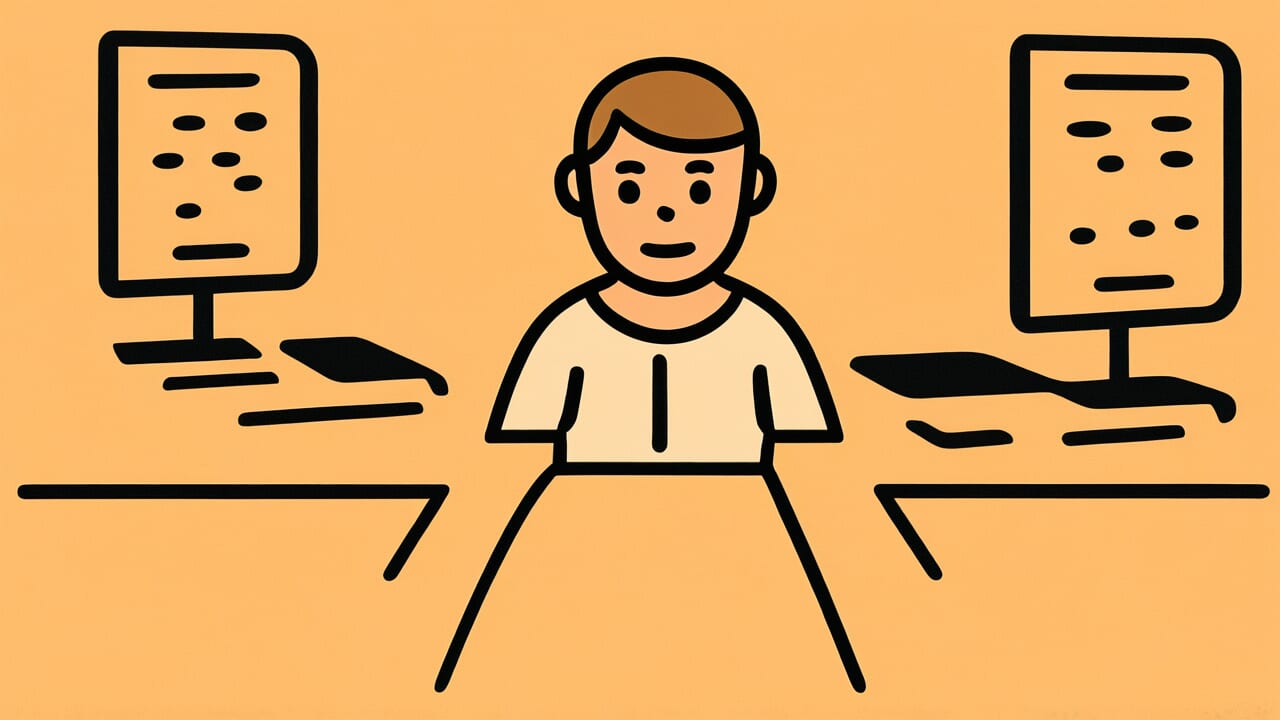How to Read “Error is human”
Error is human
[ER-er iz HYOO-muhn]
All words are common and easy to pronounce.
Meaning of “Error is human”
Simply put, this proverb means that making mistakes is a normal and unavoidable part of being human.
The basic meaning is straightforward. Everyone makes errors, from small daily mistakes to bigger life decisions. The proverb reminds us that this isn’t a character flaw. It’s just how humans work. Our brains aren’t perfect computers that always get things right.
We use this wisdom when someone feels terrible about a mistake. Maybe they forgot an important meeting or said something wrong. The saying helps us remember that mistakes don’t make us bad people. They make us human. It’s also useful when we’re being too hard on ourselves about past errors.
What’s interesting about this wisdom is how it balances two ideas. It acknowledges that mistakes happen without excusing carelessness. The proverb doesn’t say “mistakes don’t matter.” Instead, it says “mistakes are expected.” This helps us learn from errors without drowning in shame about them.
Origin and Etymology
The exact origin of this specific phrase is unknown, though the idea appears in various forms throughout history.
The concept comes from ancient observations about human nature. People have always noticed that even the smartest, most careful individuals make mistakes. This reality needed explaining, especially in societies that valued perfection and order. Sayings like this helped communities accept human limitations while still encouraging people to try their best.
The idea spread through religious teachings, philosophical writings, and everyday conversation. Different cultures developed similar sayings because the truth was so obvious. As societies became more complex, the wisdom became even more important. People needed reminders that mistakes were normal, not disasters that defined their worth.
Interesting Facts
The word “error” comes from Latin “errare,” which originally meant “to wander” or “to stray from the path.” This suggests mistakes were once seen as getting lost rather than failing completely. The connection between wandering and making mistakes shows how ancient people understood errors as natural detours, not permanent destinations.
Usage Examples
- Manager to employee: “Don’t worry about the calculation mistake in the report – error is human.”
- Friend to friend: “She shouldn’t feel so bad about forgetting the meeting – error is human.”
Universal Wisdom
This proverb touches on a fundamental truth about human consciousness and learning. Our brains evolved to make quick decisions with incomplete information, which naturally leads to mistakes. What seems like a design flaw is actually a survival feature. Humans who could act fast, even imperfectly, often survived better than those who hesitated seeking perfect information.
The deeper psychological truth involves how we learn and grow. Mistakes aren’t just inevitable byproducts of thinking. They’re essential ingredients for improvement. Our brains literally rewire themselves when we encounter errors, strengthening pathways that lead to better decisions. This means the capacity for error and the capacity for wisdom are intimately connected. You can’t have one without the other.
Perhaps most importantly, this wisdom addresses our relationship with shame and self-acceptance. Humans are social creatures who depend on group belonging for survival. The fear of making mistakes often stems from deeper fears about rejection or abandonment. By normalizing error as part of human nature, this proverb creates space for the vulnerability that genuine learning requires. It suggests that communities thrive when they expect mistakes rather than punish them, creating environments where people can take the risks necessary for growth and innovation.
When AI Hears This
Societies accidentally created a brilliant system through this simple saying. When groups accept that mistakes are normal, people become willing to try new things. They share their failures openly instead of hiding them. This creates a hidden economy where forgiveness gets traded for innovation. Communities that embrace human error actually advance faster than those demanding perfection.
This pattern reveals something fascinating about how humans really learn together. People need psychological safety before they’ll take meaningful risks. When societies punish every mistake harshly, individuals become cautious and secretive. But when error is expected, people experiment boldly and admit problems quickly. This unconscious social contract maximizes group learning while minimizing wasted energy on shame and cover-ups.
What strikes me most is how this “weakness” becomes a superpower. Humans turned their natural fallibility into a collective advantage through acceptance. Other species might hide their mistakes to maintain status. But humans created cultures that reward honest failure and shared learning. This transforms individual limitations into group intelligence, making human societies remarkably adaptable and creative.
Lessons for Today
Living with this wisdom starts with changing how we talk to ourselves about mistakes. Instead of harsh self-criticism, we can practice curious observation. When errors happen, the question shifts from “Why am I so stupid?” to “What can I learn here?” This doesn’t mean becoming careless or avoiding responsibility. It means treating mistakes as information rather than evidence of personal failure.
In relationships, this understanding transforms how we respond to others’ errors. When someone makes a mistake, our reaction can either shame them into hiding future errors or encourage honest communication about what went wrong. Families, friendships, and workplaces that normalize mistakes often see more innovation and stronger bonds. People feel safer being authentic when they know their human limitations won’t be held against them.
The collective application involves creating systems that account for human error rather than pretending it won’t happen. Good organizations build in safeguards, encourage reporting of mistakes, and focus on learning rather than blame. This isn’t about lowering standards but about working with human nature instead of against it. The goal becomes reducing harmful errors while maintaining the creative risk-taking that leads to progress. Understanding that error is human helps us build a world that works better for actual humans, not imaginary perfect beings.



Comments